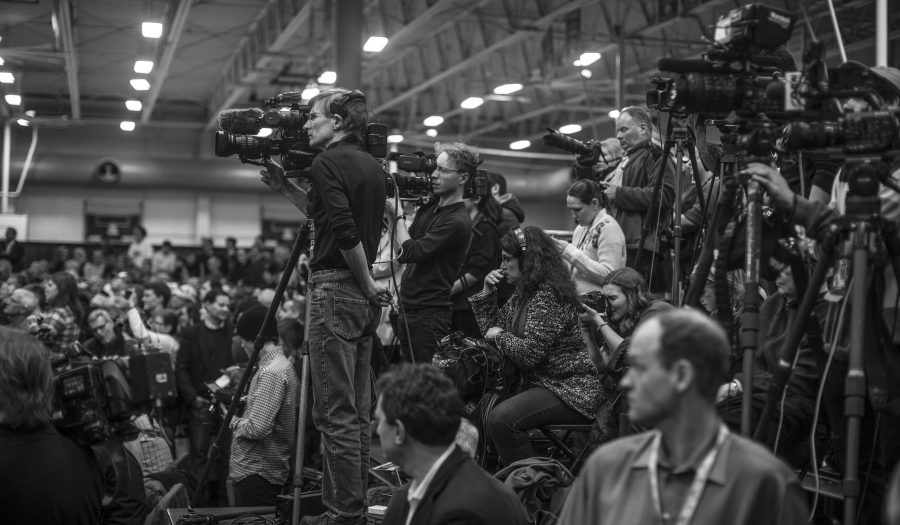As a journalist, I believe the media are essential to maintaining a strong democracy, and I still condemn vilification of the “fake news media” that aims to deepen public cynicism about the press. Nevertheless, Americans’ trust in the mass media is at a historical low, according to a 2016 Gallup poll. And it’s ignorant to pretend just one “populist” politician is at the core of this problem — or that his bashing of the liberal media has no basis in truth.
The Internet and social media have radically changed how we share and consume journalism. However, this change in media consumption has its caveats. First, I’d like to point out that this is an opinion column, not a news story. I often see angry posts on social media from people complaining the opinion piece they’ve shared is “biased.” They don’t realize their misdirected criticism toward the Washington Post only actually applies to the writer. Additionally, fake news — as in, actually false reporting from websites that pretend to be ABC News or other mainstream media — continues to be a problem long after the election. It’s no wonder that (especially older) people have become disillusioned with an industry they feel now aims to trick them.
RELATED: Grissel: The utter failure of dogmatic liberalism
But claims that prominent media outlets have a liberal slant aren’t just the wailings of right-wing pundits. These observations are congruent with how the industry has drastically shifted geographically since 2008. While the number of newspaper jobs in the U.S. decreased by almost half from January 2008 to March 2016, late 2015 marked the first time in history that the number of workers in Internet publishing surpassed the number working for newspapers. And those Internet jobs, unlike newspaper ones, are largely concentrated in big cities and along the coasts. Furthermore, these predominantly liberal areas are the ones experiencing the most growth.
While journalists strive to remain objective, it is inevitable that bias influences how we write and even what we report on. And while criticisms of entire news outlets for singular opinion pieces are misguided, the opinions sections of most online organizations lean left as a whole. It’s evident that while the Internet principally seems to promise a greater diversity of opinion, it’s only done quite the opposite. While it’s not the fault of left-leaning journalists themselves that the industry has formed this way, they shouldn’t dismiss accusations about the “liberal media” as only being the inflammatory remarks of people who like Ann Coulter.
https://twitter.com/mack_meri/status/902983325480046593
So, where do we go from here? Online publishing has expanded the platform for journalism in a revolutionary way, but for now, that expansion has been confined to coasts that don’t accurately represent the rest of the U.S. Even the Opinions section in this very newspaper has struggled to broaden its political scope — we are in Iowa City, after all. National news organizations need to prioritize employing contributors from all regions and walks of life, something even more possible today with digital media. For now, I implore aspiring journalists, especially those right of center, to reach for careers in the highest places — you can even start out by applying to the DI.
Don’t feel like the “liberal media” represent you? Represent yourself—democracy is better off for it.



